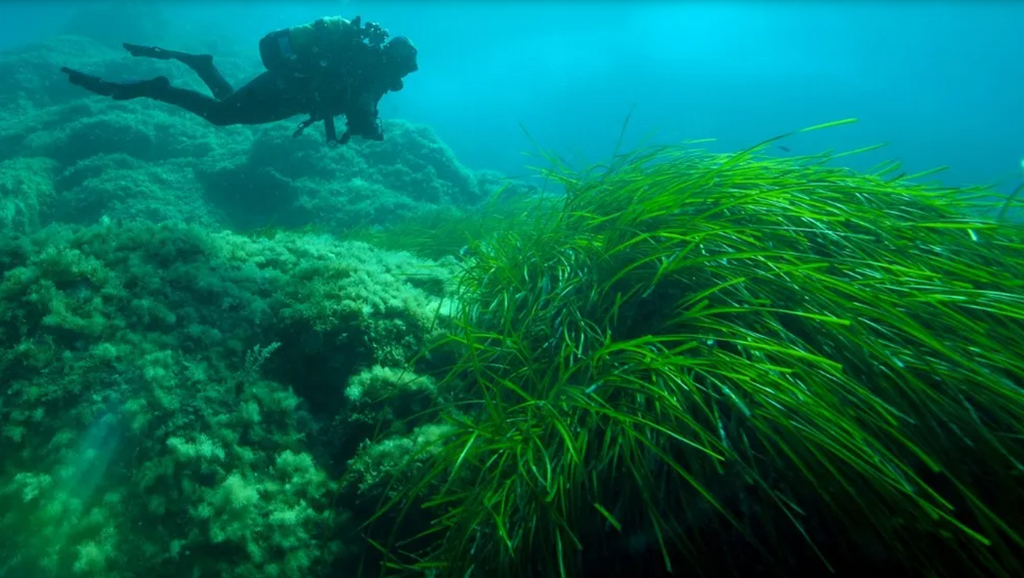Under the Mediterranean waters off Tunisia, seagrass meadows provide vital marine habitats for the fishing fleets and an erosion buffer for the beaches that the tourism industry depends on.
Even more importantly, seagrass is key in storing carbon and producing oxygen – critical to slowing the devastating impacts of climate change – so much that the Mediterranean Wetlands Initiative (MedWet) calls it "the lungs" of the sea.
1 View gallery


An underwater view of Posidonia oceanica seagrass in the Mediterranean Sea, on June 24, 2015
(Photo: AFP)
But, scientists warn that human activity is quickly driving the undersea grass to destruction, with dire environmental and economic impacts.
The seagrass, known as Posidonia oceanica, spans the Mediterranean seabed from Cyprus to Spain, sucking in carbon and curbing water acidity.
"Posidonia oceanica... is one of the most important sources of oxygen provided to coastal waters," according to MedWet.
Tunisia, on the North African coastline, "has the largest meadows" of all, spreading over 3,900 square miles, marine ecologist Rym Zakhama-Sraieb said.
The underwater flowering plants absorb three times more blue carbon – the term used to describe the removal of carbon dioxide from the atmosphere by the ocean and coastal ecosystems – than a forest, and they can store it for thousands of years, she added.
But rampant pollution, illegal fishing ripping up the seagrass, and a failure by people to appreciate its life-giving importance are spelling its demise.
The seagrass is also crucial for a country already gripped by a grinding economic crisis, Tunisian marine biologist Yassine Ramzi Sghaier warned.
"It is the largest provider of jobs," he claimed, noting that at least 150,000 people are directly employed in fishing and tens of thousands in the tourism industry.

